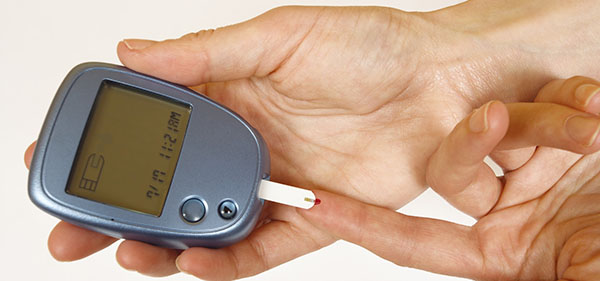By Allan Jones
Pride Health Columnist
If you have diabetes, a visit to your eye doctor at least once a year for regular exams is necessary to avoid eye problems. High blood sugar (glucose) increases the risk of eye problems from diabetes. In fact, diabetes is the leading cause of blindness in adults age 20 to 74.
If you are diabetic and have blurred vision, do not buy a new pair of glasses as soon as you notice the blurred vision. It could just be a temporary eye problem that develops rapidly with diabetes and is caused by high blood sugar levels. It may take as long as three months after your blood sugar is well controlled, for your vision to fully get back to normal.
Blurred vision can also be a symptom of more serious eye problem with diabetes. The three major eye problems that people with diabetes may develop and should be aware of are cataracts, glaucoma, and retinopathy.
A cataract is a clouding or fogging of the normally clear lens of the eye. The lens is what allows us to see and focus on an image, just like a camera. Anyone can get cataracts, and it starts creating a problem around age 60, however people with diabetes get cataracts at an earlier age, and the condition progresses more rapidly than in people without diabetes.
If you have cataract, the cloudiness of the lens of your eye leads to an inability to focus light, and your vision is impaired. Symptoms of this problem include blurred or glared vision.
During cataract surgery, which lasts for about 20 minutes, the cloudy lens is removed and replaced by a clear artificial lens, restoring clear vision.
Glaucoma occurs when fluid inside the eye does not drain properly, leading to excess pressure inside the eye. The increased pressure can damage nerves and the blood vessels in the eye, causing changes in vision, and if not treated, blindness. There are no symptoms associated with the most common types of glaucoma until it is far advanced and significant vision loss and irreversible damage has occurred. You can have glaucoma without knowing, and it is an eye doctor who can determine if you have glaucoma.
Treatment of glaucoma in diabetics can include eye drops, laser procedures, medicine, or surgery. You can prevent serious eye problems by getting an annual glaucoma screening from your eye doctor.
People with diabetes are also more likely to get an uncommon type of glaucoma, called neovascular glaucoma. In this form of glaucoma new blood vessels grow on the iris, the coloured part of the eye. These blood vessels block the normal flow of fluid out of the eye, raising the eye pressure. It is difficult to treat. One option is laser surgery to reduce the blood vessels.
In retinopathy, the retina, the light sensitive area at the back of the eye is affected. The retina is a group of specialized cells that convert light as it enters through the lens into images. The eye nerve or optic nerve transmits the visual information, from the eye, to the brain.
Retinopathy is one of the vascular (blood-vessel related) complications related to diabetes. This diabetes eye problem is due to damage of small blood vessels. Kidney disease, nerve damage, heart disease and stroke due to diabetes, are also a result of blood vessel complications.
Annual eye exams are critical if you have diabetes. A thorough eye exam can help identify a problem early on when it is more easily treated, and can also help prevent further vision loss or even blindness. The control of blood sugar, blood pressure, and blood cholesterol are important in slowing the progression of retinopathy and other eye problems.
Diabetes is bad for your eyes, but you have the power in your hands to eliminate or minimize eye problems associated with diabetes. The key thing is to keep your blood sugar level at the levels recommended by your diabetes health care provider.
Control diabetes and do not let diabetes control your ability to see. You can do it.
Allan Jones is a Health Promoter and Broadcaster. He can be reached at ajones@jjmedical.ca.
 Pride News Canada's Leader In African Canadian & Caribbean News, Views & Lifestyle
Pride News Canada's Leader In African Canadian & Caribbean News, Views & Lifestyle





